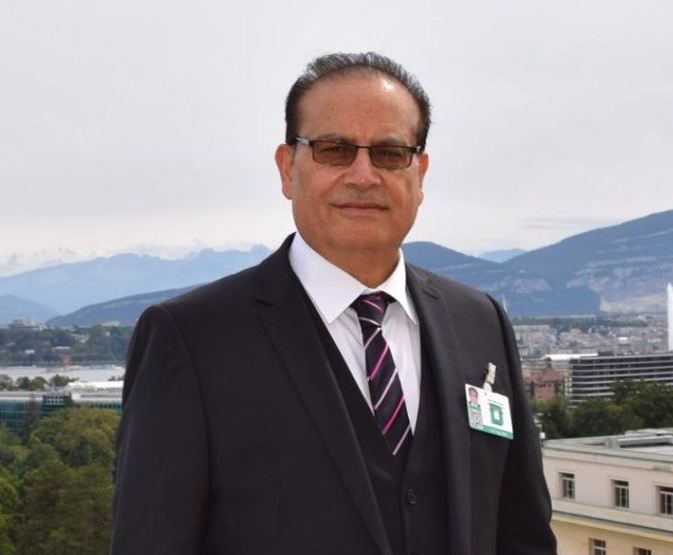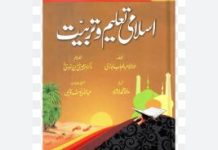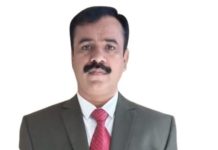By: Qamar Bashir
As usual, the people of Pakistan experienced history in the making while witnessing the live proceedings of the Supreme Court of Pakistan today (24.06.2024), with the full bench of the Supreme Court versus one knight, Salman Akram Raja, representing an Independent Candidate during the hearing of an appeal filed by the Sunni Ittehad Council (SIC) against being deprived of the reserved seats for women and minorities in the National Assembly.
I had all sympathies for Raja Sahib, who faced pinching, exploratory, and incisive questions bombarded at him by all members of the bench. Each judge had his own understanding, niche, and approach to the issue and was trying to steer the discussion his way, making things even more difficult for the counsel, who was representing Ms. Kawal Shauzab, an active member of the PTI and an aspirant for nomination on special seats for women in the National Assembly.
Justice Athar Minallah and Justice Mansoor Ali Shah were urging Raja Sahib to take a holistic approach to the issue. They advised him to avoid getting embroiled in technical and complicated matters, instead emphasizing the importance of respecting and restoring the mandate and will of the people. They repeatedly hinted that he should highlight the misinterpretation of the Supreme Court’s judgment by the Election Commission, which led to PTI being denied the right to act as a party.
They also suggested that Raja Sahib request the court to take suo moto action under Article 184 to reverse the misinterpretation of the Supreme Court’s judgment by the Election Commission. This action would restore the correct interpretation of the judgment and bring all subsequent actions and reactions in line with it. This would effectively mean that PTI would be restored as a party in the National Assembly, allowing independent candidates to join it and be allocated proportional special seats for women and minorities.
Justice Mansoor Ali Shah gave him another hint to file an appeal against the decision of the registrar Supreme Court, who had returned the PTI’s appeal against the misinterpretation of the supreme court’s judgment by the election commission, even now, and let the court adjudicate the appeal and gave its decision.
Justice Mansoor was referring to a protracted legal battle which PTI fought after it was denied the symbol BAT on January 15, 2024 by the Election Commission (ECP-123). PTI then appealed to the Lahore High Court on February 1, 2024 (LHC-456), and the Peshawar High Court on February 20, 2024 (PHC-789), but both appeals were dismissed. Subsequently, PTI approached the Supreme Court of Pakistan, where the Registrar returned their petition on technical grounds on March 5, 2024 (SCR-101). PTI did not file an appeal against this decision, effectively ending their legal efforts to contest the elections.
According to the judges, PTI is currently not a party to the impugned matter. Although, in this instance, PTI cannot be heard, its point of view in the impugned case is of paramount importance. They stated that even now, PTI can file an appeal before the Supreme Court against the decision of the Supreme Court Registrar. This would bring the entire matter before the Supreme Court, allowing for a proper appreciation of the issue. Consequently, the Supreme Court would then be in a position to properly address the matter.
Justice Athar Minullah also gave Raja Sahib a hint and encouraged him to divulge the truth which deprived PTI from the level playing field while contesting Election-2024 implying the elaborate incidents of brute state force used against PTI candidates during the entire election process. Raja sahib did not appreciate the hint due to his over-fixation with his line of arguments and continued to insist on technicalities.
This gap was however, filled in by a Press Talk during break in the supreme court’s proceeding, by Kanwal Shauzab who was flanked by Senator Faisal Javaid who now supports a beard and looked rugged but fresh. She said that State brute force was used to snatch the nomination papers of the candidates when they approached the Returning Officer for filing nomination papers. The nominator and seconder were harassed and abducted.
She added that PTI candidates were even barred from entering the premises of returning officers which prevented many of the PTI candidates from even filing the nomination papers. The state forces were used in many other forms. The PTI candidates were subjected to intimidation, harassment, and unlawful arrests, with many experienced violence and assaults. PTI also reported obstruction of their campaign activities, including denial of permits for rallies and restricted movement, constant surveillance and intimidation tactics, media censorship, and blackouts to limit their reach.
Additionally, PTI blamed the Election Commission for manipulating the election results in favor of their opponents, including denial of their party symbol and disqualification of candidates, vote rigging and tampering, with ballot stuffing and manipulation of vote counts. The Election Commision unfairly dismissed or delayed, restricting their access to justice. But unluckily these assertions could not be made part of the court proceedings.
During the entire hearing the Chief Justice was trying the justify supreme court’s decision which deprived the PTI from its symbol BAT and intervened several times to keep the argument in line with his own bent of mind. But the brother judges seemed to ignore what the chief justice was trying to achieve, and continued a barrage of questions which visibly annoyed the Chief Justice.
During one of the such incidents, Chief Justice despite saying time and again that PTI is not party to the impugned case painted a scenario where, all the independent candidates had instead of joining the SIC had joined the PTI. He charged Raja Sahib and PTI of inaction, misjudgement and of committing critical legal and constitutional lapse which deprived them not only the party but also the political capital attached to it.
During the discussion an important concept of form and substance came under discussion. In legal parlance, the concept of “form and substance” distinguishes between the procedural aspects of a legal matter (form) and its core issues and merits (substance).
Form relates to technical compliance with legal procedures, such as proper filing and adherence to deadlines. Substance focuses on the actual facts, rights, and legal principles involved in the case, aiming for substantive justice.
Courts must balance these aspects to prevent technicalities from overshadowing the core issues. During a Supreme Court hearing, this concept might address whether a case should be decided based on procedural technicalities or the fundamental rights and justice at stake, ensuring that both procedural integrity and substantive justice are achieved.
By: Qamar Bashir
Former Press Secretary to the President
Former Press Minister to the Embassy of Pakistan to France
Former MD, SRBC












